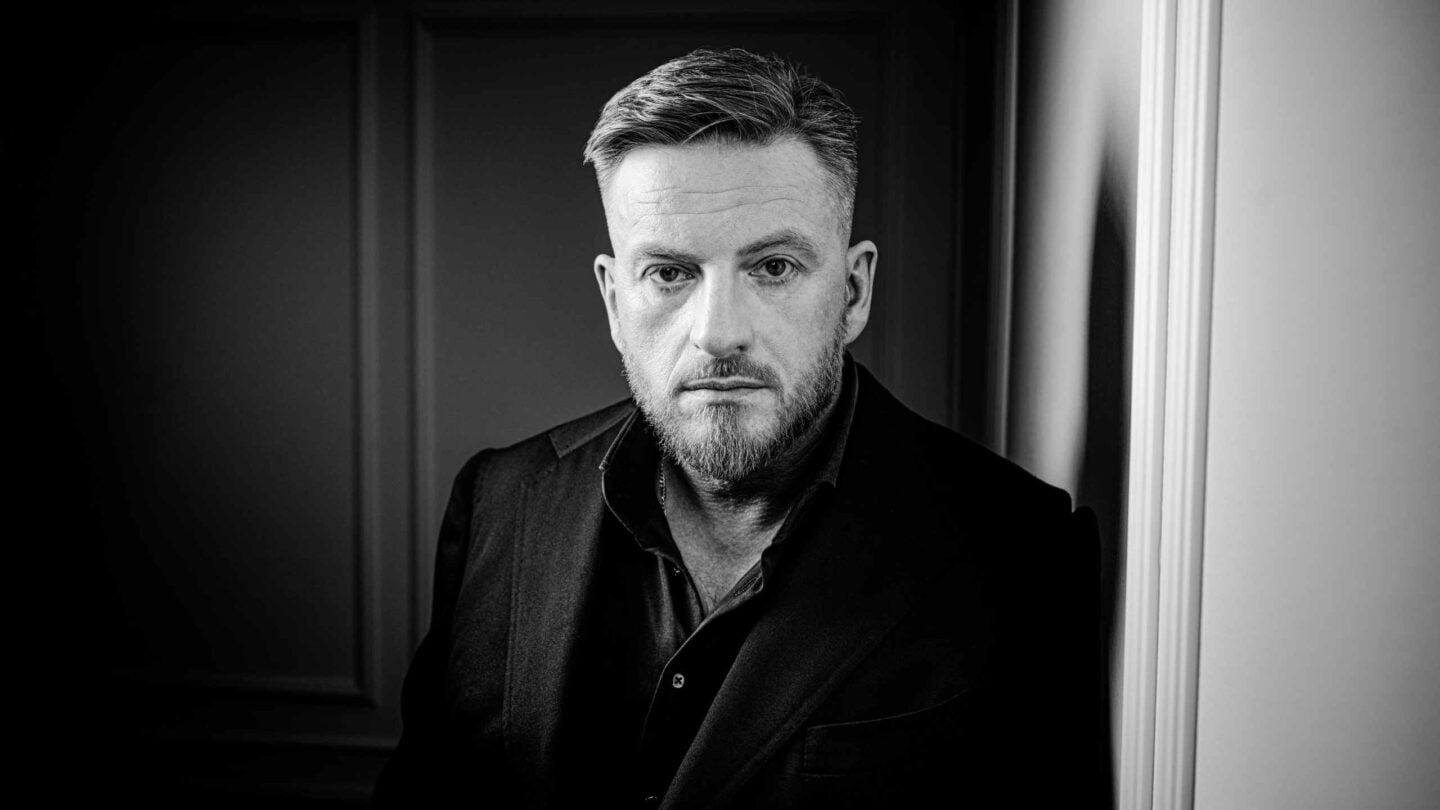
Szczepan Twardoch
Szczepan Twardoch was born in 1979 in Pilchowice in the Polish province of Silesia[Województwo śląskie] (Województwo śląskie). He belongs to a Polish Silesian minority. Twardoch studied sociology and philosophy in Katowice. He came to literary writing while writing his master’s thesis on the French Revolution. The central question he asked himself was how European history would have been like if the revolution had broken out in Vienna instead of Paris.
In his subsequent novels, Twardoch concentrates primarily on Polish history. He made his breakthrough with the novel »Morfina« [2012; tr: Morphine], which became an international success and was awarded the Paszport Polityki Prize, the Nike Audience Award, and the Kościelski Prize. The takes place in Warsaw at the end of the 1930s, after the German invasion, and focuses on a reserve officer. He lives an extravagant lifestyle as a bon vivant and ultimately, almost accidentially, becomes a resistance fighter. »In this great anti-front novel, Twardoch also poses the central question of his writing: Is there a meaning to history? Or does everything remain as it has always been, because institutions evolve but not people? Aren’t ideologies pure monsters that drive people into a unification that is alien to their nature?« [»FAZ«]. [FAZ]
Twardoch’s Silesia novel »Drach«, published in 2014, for which the author and his translator Olaf Kühl received the 2016 Brücke Berlin Literature and Translation Prize, once again deals with historical events – from the Middle Ages to the uprisings of the 1920s, from the Second World War and forced Polonization after 1945 to the present day. In the novel, the earth appears as the exclusive witness to historical events.
Twardoch’s novel »Król« [2017; Eng. »The King of Warsaw«, 2020], which tells the story of the rise of the Jewish underworld king Jakub Shapiro, is set in Warsaw during the interwar years. The following novel »Królestwo« [2018; tr: Kingdom] keeps the story going. In Warsaw, after the German attack in 1939, Shapiro takes up arms in a hopeless struggle. His small empire and his family are shattered, and the cost of survival in the Warsaw ghetto is high.
»Pokora« [2020; tr: Humility] deals with the identity conflict of a miner’s son after the end of the First World War, during the revolutionary turmoil in Berlin and the unrest in Upper Silesia.
His most recent novel »Chołod« [2022; tr: Cold] works with editorial fiction. The diary of Konrad Widuch falls into the hands of a writer named Szczepan Twardoch: once an enthusiastic Russian revolutionary, Widuch ended up in the Gulag under Stalin, but managed to escape and found refuge with a people living on the outskirts of society. A literary work »that is a journey through Europe’s collective unconscious and at the same time a great roman á clef for the present« [»NZZ«].
»Die Nulllinie« [tr: Flatline], a volume of reportage about Ukraine, where he supports the soldiers on the front line, will be published at the end of 2024.
In 2019, Szczepan Twardoch received the German-Polish Samuel Bogumił Linde Prize, among many other awards. He lives in Pilchowice and Warsaw.
As of May 2024
Sternberg
superNOWA
Warschau, 2007
Epifania wikarego Trzaski
Wydawnictwo Dolnośląskie
Wrocław, 2007
Wieczny Grunwald, powieść zza końca czasów
Narodowe Centrum Kultury
Warschau, 2010
Morphin
Rowohlt Berlin
Berlin, 2014
[Ü: Olaf Kühl]
Drach
Rowohlt Berlin
Berlin, 2016
[Ü: Olaf Kühl]
Der Boxer
Rowohlt Berlin
Berlin, 2018
[Ü: Olaf Kühl]
Wale und Nachtfalter
Tagebuch vom Leben und Reisen
Rowohlt Berlin
Berlin, 2019
[Ü: Olaf Kühl]
Jak nie zostałem poetą
Wydawnictwo Literackie
Krakau, 2019
Das schwarze Königreich
Rowohlt Berlin
Berlin, 2020
[Ü: Olaf Kühl]
Demut
Rowohlt Berlin
Berlin, 2022
[Ü: Olaf Kühl]
Kälte
Rowohlt Berlin
Berlin, 2024
[Ü: Olaf Kühl]
